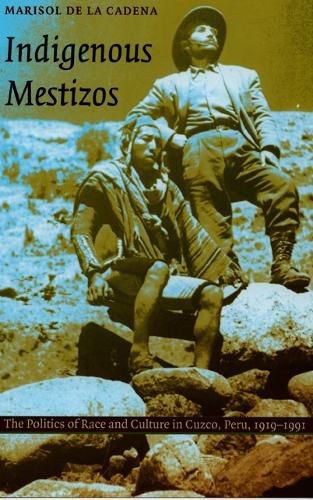Readings Newsletter
Become a Readings Member to make your shopping experience even easier.
Sign in or sign up for free!
You’re not far away from qualifying for FREE standard shipping within Australia
You’ve qualified for FREE standard shipping within Australia
The cart is loading…






In the early 20th century, Peruvian intellectuals, like their European counterparts, rejected biological categories of race as a basis for discrimination. But this antiracist ideology did not eliminate social hierarchies; instead, it redefined racial categories as cultural differences, such as differences in education or manners. In this work, Marisol de la Cadena traces the history of the notion of race from this turn-of-the-century definition to a current denial of the definition’s scientific validity. The study examines how indigenous citizens of the city of Cuzco have been conceived by others as well as how they have viewed themselves and places these conceptions within the struggle for political identity and representation. Demonstrating that the terms Indian and mestizo are complex, ambivalent, and influenced by social, legal and political changes, de la Cadena provides close readings of everyday concepts such as marketplace identity, religious ritual, grassroots dance, and popular culture, as well as of such common terms as respect, decency and education.
$9.00 standard shipping within Australia
FREE standard shipping within Australia for orders over $100.00
Express & International shipping calculated at checkout
In the early 20th century, Peruvian intellectuals, like their European counterparts, rejected biological categories of race as a basis for discrimination. But this antiracist ideology did not eliminate social hierarchies; instead, it redefined racial categories as cultural differences, such as differences in education or manners. In this work, Marisol de la Cadena traces the history of the notion of race from this turn-of-the-century definition to a current denial of the definition’s scientific validity. The study examines how indigenous citizens of the city of Cuzco have been conceived by others as well as how they have viewed themselves and places these conceptions within the struggle for political identity and representation. Demonstrating that the terms Indian and mestizo are complex, ambivalent, and influenced by social, legal and political changes, de la Cadena provides close readings of everyday concepts such as marketplace identity, religious ritual, grassroots dance, and popular culture, as well as of such common terms as respect, decency and education.